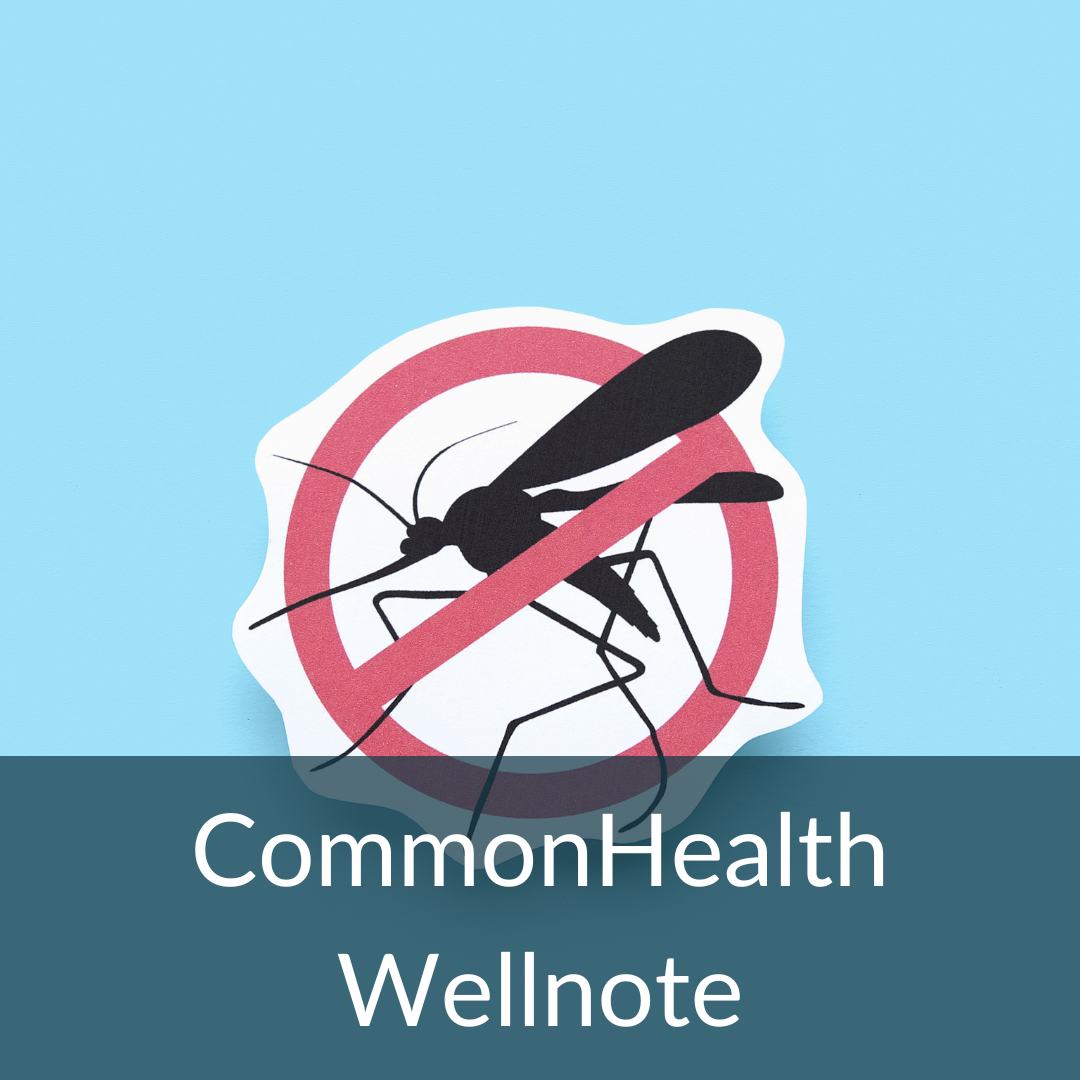CommonHealth Weekly Wellnote
How can your Virginia State Employee Wellness Program help? The CommonHealth programs and campaigns cover a variety of health topics and are available in a range of formats to meet the needs of different workplaces. Highly skilled Wellness Consultants provide the latest on stress, sleep, nutrition, exercise and more for faculty/staff meetings, special events, conferences, benefit fairs, safety meetings, lunch and learns, etc. They provide traditional, in-person presentations and displays as well as virtual presentations, on-demand videos and seasonal health-related challenges that are fun and engaging. Visit the CommonHealth website to see how CommonHealth can help you. If you’re looking to book an event in September, connect sooner rather than later to ensure you get a date that works for you.
Click here to view this week’s CommonHealth Weekly Wellnote. Check out the highlights below.
- Spotlight on Summer Safety: Tick & Mosquito Safety:
Everyone seems to know something about ticks, but often those things are just wrong enough to leave us at risk. Stay protected from ticks by learning more…
-
- ENVIRONMENT: One common myth is that ticks fall out of trees onto people’s heads. While it’s true that ticks live in wooded areas, they don’t jump out of trees. Considering ticks don’t even have eyes, jumping out of a tree to latch onto a host would be extremely difficult for them to accomplish. They climb to the top of grass or bushes where they can more easily attach themselves to a host such as a white-tailed deer.
- BULLS EYE RASH: Contrary to popular belief, not everyone who is bitten by a tick will develop a rash. While a bullseye rash is characteristic of Lyme disease, it may not appear until several days after the tick has finished feeding. Some people may develop a mark at the bite site while the tick is still attached, but others may not notice any symptoms until much later. What happens after a tick bite is dependent on your own body’s reaction to that bite and if the tick has passed any germs to you.
- REPELLENTS: Many people believe that DEET products are the best at repelling ticks, but this is not entirely true. DEET is a good repellent for biting flies or mosquitoes, but it’s not as effective at repelling ticks. The most effective tick repellent is permethrin. Permethrin-treated clothing provides optimum protection against ticks that may crawl on your clothes, and it’s more long-lasting than DEET. To be extra cautious, you can always apply DEET to exposed skin as well as wearing permethrin-treated clothing.
- Try It This Week: Mosquito Maneuvers
Mosquitoes lay their eggs in water so one of the most important things you can do to control their population is remove standing water from your yard. Empty and scrub, turn over, cover or throw out items that hold water such as tires, buckets, toys, pools, birdbaths, flower pot saucers or trash containers. See the attachment from the CDC to learn more about how to prevent mosquito bites.
- Learn More About Insect Repellents
The EPA has a very useful guide on how to choose and use insect repellents.
- Benefits Buzz: 2024 Wellness Champions–Last Call For Nominations
Do you know an employee who has motivated others to make healthier choices or has implemented a policy, practice, or activity to help create a culture of wellness in the workplace or beyond? Recognize the good stuff in your office and encourage each other to live well – nominate a CommonHealth Wellness Champion today!
For questions regarding this week’s communication or the CommonHealth program, please reach out to your respective campus coordinator below:
- Alexandria – Najeeb Baha
- Annandale – Matthew “Tank” McCarl
- College Staff – Cecil “C.J.” Jackson
- Fairfax – Faith Redd Walker
- Loudoun – Kimberly T. Wright
- Manassas – ThuyTien Ngo-Nguyen
- Medical Education Campus (Springfield) –Emily Miller
- Woodbridge – Dahlia Henry-Tett

Submitted by:
Faith Redd-Walker, Office of Employee Wellness and Wellbeing, employeewellbeing@nvcc.edu
